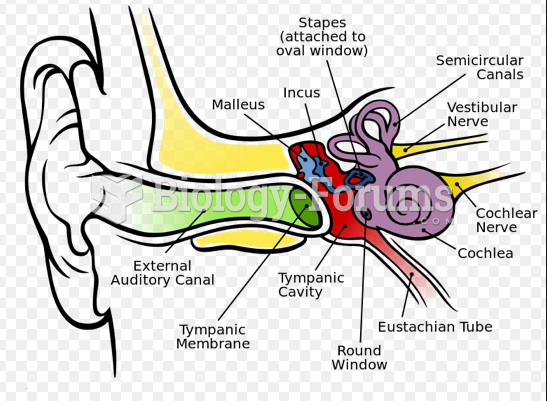|
|
|
Multiple sclerosis is a condition wherein the body's nervous system is weakened by an autoimmune reaction that attacks the myelin sheaths of neurons.
Adolescents often feel clumsy during puberty because during this time of development, their hands and feet grow faster than their arms and legs do. The body is therefore out of proportion. One out of five adolescents actually experiences growing pains during this period.
Long-term mental and physical effects from substance abuse include: paranoia, psychosis, immune deficiencies, and organ damage.
In 2010, opiate painkllers, such as morphine, OxyContin®, and Vicodin®, were tied to almost 60% of drug overdose deaths.
Urine turns bright yellow if larger than normal amounts of certain substances are consumed; one of these substances is asparagus.
 A comparison between chromosomes found in a normal human cell and a cancer cell from the same person
A comparison between chromosomes found in a normal human cell and a cancer cell from the same person
 Edward Bellamy, author of the utopian novel Looking Backward (1888) Bellamy’s socialism worried many
Edward Bellamy, author of the utopian novel Looking Backward (1888) Bellamy’s socialism worried many





